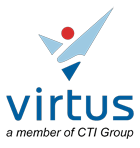For organizations, Ansible Automation is currently one of the automation tools that can help accelerate their digital transformation, especially when converting processes that were previously manual and time-consuming, to more modern methods, and of course, saving various aspects in the process. Ansible Automation, on the other hand, is expected to have a substantial impact on enterprises' ability to satisfy the requirements of their rapidly expanding customers.
Ansible Automation may do more than simply modernize manual processes; it can also help organizations move rapidly in handling their complex IT infrastructures and accommodate the development of new technologies by automating IT operations in constrained contexts with the support of powerful tools. In this way, Ansible Automation is a strategic move that organizations can take when they wish to update their IT systems so that they can focus more on innovation.
The Red Hat Ansible Automation Platform is a great way for enterprises to implement ansible automation. According to IDC, companies using the Red Hat Ansible Automation Platform have seen a ROI of 667 percent over the previous five years, as well as an increase in annual revenue of up to USD 1.9 million. As a result, IT infrastructure management efficiency increases by up to 30 percent, storage resources are deployed 75 percent faster, and more applications are developed by up to 39 percent annually for companies that use this technology.
In this article, we'll go into great detail about Red Hat Ansible Automation. Ansible is a valuable tool that you should become familiar with before moving on to the next step of the process.
What Is Ansible?
Ansible is an open-source IT automation engine that automates provisioning, configuration management, application deployment, orchestration and other IT activities.
For cloud provisioning, configuration management, application deployment, intra-service synchronization and other IT tasks, Ansible is a simple tool to learn and apply.
Ansible is designed for multi-tier deployments, allowing it to create a business IT architecture by specifying how all of a company's IT systems are interconnected rather of managing just one system at a time. Additionally, Ansible doesn't require any additional proprietary security agents or infrastructure, making it simple to deploy. What's important here is that YAML, an Ansible Playbook part, makes it simple to describe automation activities in plain English.
How Does Red Hat Ansible Increase Efficiency for Innovation?
The Red Hat Ansible Automation Platform allows organizations to focus more on their innovations since they don't have to spend time determining how to automate their IT infrastructure.
Enterprises will also benefit from standardizing their automation since these solutions may connect people across IT domains to simplify orchestration and offer governance in a wide range of situations. As well as automating IT systems, the Red Hat Ansible Automation Platform can also provision cloud services, storage solutions, and infrastructure components automatically.
Red Hat Ansible Automation Platform Features Explained
The following features of Red Hat Ansible Automation Platform can help in the seamless operation of your IT infrastructure's automation.
Automation Execution Environments
The container image used to run the roles and the Ansible Playbook is the automation execution environment. This environment creates a secure, standardized, and portable method for creating and distributing automation environments between production and development teams.
Standardize and Scale Automation
As a result, businesses will be able to standardize the way in which automation is implemented, initiated and delegated. Automated systems are defined and operated by automated controllers. They may then use a centralized REST API and UI to manage inventories, initiate and plan workflows, track changes, and integrate into reports.
A Framework for Scaling Automation
Businesses will also benefit from an automation mesh that enables them to grow massive inventory automation across various network topologies, platforms, and regions in a simple, flexible, and reliable manner.
In addition, automation mesh provides a wide range of design options for resilient architectures while ensuring maximum security to normalize automation across IT systems, from the data center core to the edge.
Read More: Here’s Why Next-Generation Firewall Is Crucial for Your Network Security
Why Choose Red Hat Ansible Automation Platform?
There are at least four reasons why your business should use Red Hat Ansible Automation Platform as a reliable IT automation platform.
- Over the past two decades, Red Hat has been a trusted source of business infrastructure.
- Code and enhancements made by Red Hat are given back to the upstream codebase and shared with the community.
- It's not only about writing code when you work with a community. Asking and making suggestions are two of the many benefits of working together. In the open-source world, this is how things are done.
- It is possible for operations teams to collect and analyze data on the status of automation installations across various clusters using Red Hat Insights for Ansible Automation Platform (RAAP).
What Can Red Hat Automate?
The Red Hat Ansible Automation Platform can automate these six IT components.
1. Infrastructure
Configure apps and infrastructure for public or private clouds, containers, and virtual environments.
2. Application
When you automate your application deployments, you can make your installations, upgrades, and day-to-day management more repeatable and reliable.
3. Network
Manage all network and IT processes across physical, software-defined, and cloud-based networks.
4. Container
Using Kubernetes Operators and frameworks, you can manage and automate your Kubernetes clusters and scale containerized applications.
5. Security
Investigate and respond to risks by orchestrating security systems using a curated selection of modules, roles, and playbooks.
6. Cloud
Deployment support modules ensure that instances, networks, and infrastructure can be provisioned across public and private clouds.
Get Red Hat Ansible Automation from VTI
Virtus, a Red Hat-authorized partner, offers IT automation solutions that make it simple and cost-effective for your company to update its systems. Virtus has the Red Hat Ansible Automation Platform available for immediate purchase.
Red Hat Ansible Automation Platform implementation is made easier with Virtus' support, which includes everything from consultancy to post-sales support from a reputable and certified support staff. To avoid spending time and money figuring out what works and what doesn't in your IT infrastructure, you can rely on us to assist you out 24/7. You can reach us at marketing@virtusindonesia.com for more information.
Jeko Iqbal Reza
Content Writer CTI Group



























